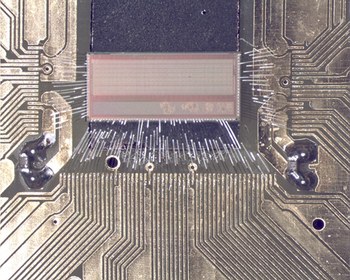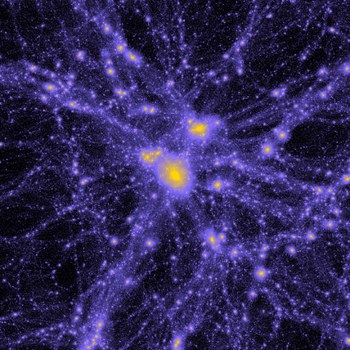Research
The Open Physics Hub promotes excellent, innovative, and interdisciplinary research initiatives at the Department of Physics and Astronomy with a particular focus on Advanced Sensing Technologies for scientific, societal, and industrial applications and on High-Performance Scientific Computing and Big Data Analytics.

Advanced Sensing Technologies
Science and scientific progress are based on the ability to sense, i.e. to detect the occurrence of physical phenomena through the interaction between matter and radiation. This is the prerequisite for any research activity in physics and astrophysics as well as in engineering operations and society wellbeing. Modern research, for instance high-energy physics and astro-particle physics, integrates a large number of sensors, distributed over a wide area, to retrieve fundamental information of the physical process under investigation. As a consequence, one of the major requirements in these fields are innovative and pioneering sensing and detecting technologies. In other research fields, ranging from material science to geophysics, biomedical physics and physics of complex systems, the investigation of physical properties of materials, the need of smart measurements and on-line monitoring call for new ideas in sensing techniques together with innovative applications of sensors.
The Open Physics Hub will soon be provided with an Advanced Sensing Laboratory with the goal of developing a specific expertise in the field of detectors and sensors within the Department of Physics and Astronomy and of fostering new ideas in the context of all those research fields that involve the use of detectors. Moreover, the research activities carried out in the Advanced Sensing Lab will be directly linked to dedicated classes for undergraduate and post-graduate university courses in order to provide the new generation of students with the necessary knowledge and skills to plan and handle new challenging experiments.

High Performance Scientific Computing
High Performance Computing is an essential tool for a wide range of research activities in physics and astrophysics, as well as for industrial and societal applications, and plays a major role in the era of Big Data science. In particular, massive parallelisation of scientific algorithms has become a stringent requirement for code development in several research fields, ranging from particle physics to astrophysics and cosmology, gravitational physics, geophysics, atmospheric physics and oceanography, climatology, material science, biomedical physics and physics of complex systems.
This requires that physicists acquire and develop a specific expertise in the field of parallel computing and demands for the introduction of High-Performance Computing basic skills in the programs of undergraduate and post-graduate university courses in order to provide the next generation of scientists with the necessary fluency in handling sophisticated and advanced parallel applications.
The High-Performance Computing cluster "Matrix" that will be soon installed at OPH, and its companion cluster for Data Analysis "BladeRunner", will allow to pursue these activities with a dedicated mid-size infrastructure providing a promptly available environment for developing and debugging parallel codes, for small production runs, and for hands-on teaching activities on parallel programming and Big Data analytics.
Furthermore, as the the access to currently available top-ranked infrastructures for academic research at the European level requires to demonstrate stringent scalability and efficiency properties of numerical codes, the OPH computing cluster will also serve as a platform for code testing and optimisation in view of the preparation of large applications for supercomputing time at European HPC facilities such as PRACE.